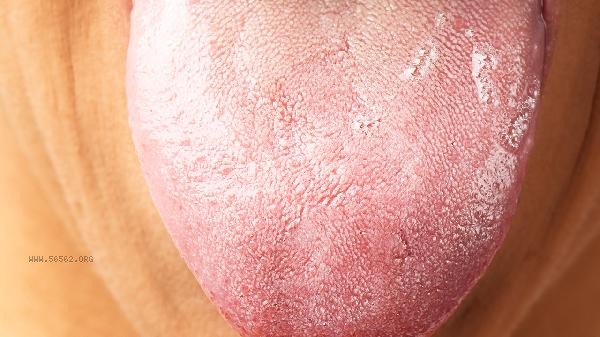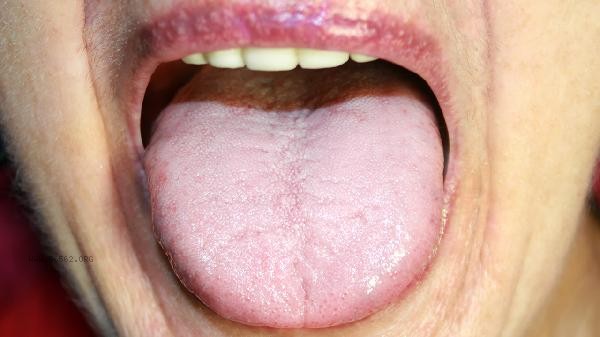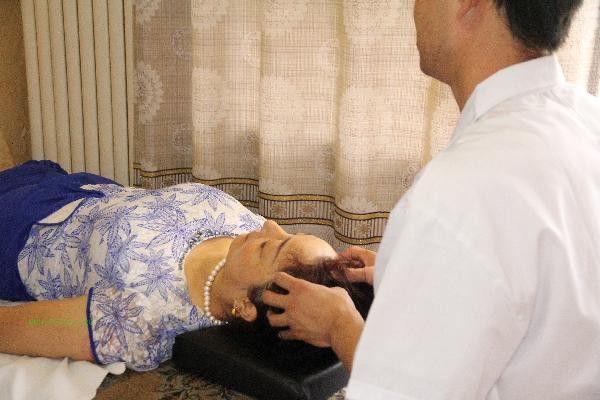Thick and white tongue coating may be related to factors such as poor oral hygiene, gastrointestinal dysfunction, fungal infections, heavy dampness, vitamin deficiency, etc. It can be alleviated by adjusting diet, improving oral hygiene, medication treatment, etc.

1. Poor oral hygiene
Long term neglect of brushing teeth or cleaning tongue coating may lead to the accumulation of food residues and bacteria on the tongue surface, forming thick white coating. It is recommended to use a soft bristled toothbrush to gently clean the surface of the tongue, combined with mouthwash containing chlorhexidine such as compound chlorhexidine mouthwash, and repeat oral cleaning daily. Parents need to help children develop the habit of rinsing their mouths after meals to avoid thickening of the tongue coating.
2. Gastrointestinal dysfunction
Dysdigestion or gastroesophageal reflux may cause abnormal tongue coating, often accompanied by symptoms such as bloating and acid reflux. According to the doctor's advice, use domperidone tablets to promote gastrointestinal peristalsis, or magnesium aluminum carbonate chewable tablets to neutralize stomach acid. It is necessary to eat regularly in daily life, avoid overeating, and consume foods such as hawthorn and yogurt in moderation to aid digestion.
3. Oral fungal infection
Candida albicans infection may cause milky white patches on the tongue, which is common in immunocompromised individuals. Under the guidance of a doctor, antifungal treatment using antifungal mouthwash or fluconazole capsules is required. Patients with diabetes need to pay special attention to controlling blood sugar to reduce the probability of fungal infection.

4. Excessive dampness in the body
Traditional Chinese medicine believes that when there is spleen deficiency and dampness, the tongue coating will appear thick, white, and greasy, which may be accompanied by heavy limbs and loss of appetite. Moderate consumption of moisture reducing ingredients such as Job's tears and adzuki beans is recommended to avoid raw, cold, and greasy foods. For those with obvious symptoms, they can consult a traditional Chinese medicine practitioner to take spleen tonifying and dampness dispelling formulas such as Shen Ling Bai Zhu San.
5. Vitamin B deficiency
Long term insufficient intake of vitamin B2 or B12 may cause abnormalities in the tongue mucosa, manifested as thickening of the tongue coating and burning sensation. Nutrients can be supplemented by eating animal liver and whole grains. In severe cases of deficiency, it is necessary to follow the doctor's advice to take compound vitamin B tablets or vitamin B12 injection.

It is necessary to maintain a light diet in daily life, drink enough warm water to help metabolism, and avoid spicy and stimulating foods that worsen tongue coating abnormalities. It is recommended to undergo an oral examination every six months. If there is continuous thickening of the tongue coating, accompanied by pain or ulcers, seek timely medical attention from a gastroenterologist or dentist. Smokers should reduce tobacco irritation and pay attention to the correlation between changes in tongue coating and systemic symptoms.







Comments (0)
Leave a Comment
No comments yet
Be the first to share your thoughts!